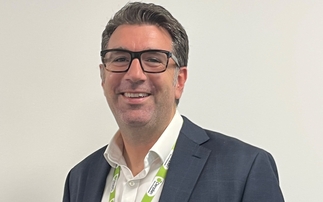Company cash plans have experienced the most growth in recent years. But do issues around excess and how employers integrate these with traditional PMI policies mean they are heading for trouble? Fiona Murphy reports
They also keep a lid on sickness absence, whether by providing support to stressed employees or giving them medical attention sooner than they would have received on the NHS. But employers are generally led down that path by benefit consultants. It still remains an untapped resource for the trusty IFA.
Castling said: “One of the biggest challenges is engaging the small-to-mid-sized enterprise (SME) market. The SME market appears to be a rich hunting ground. But broadening the distribution routes not just among the healthcare specialist or employee broker market to the IFA market – who typically shied away from healthcare – healthcare has been a bit on the side where they believe it might be complex or fraught with issues.
“For IFAs, the cash plan market is a really nice entry point for IFAs where they can set up for healthcare but don’t have to come in too much from a technical nature. It is the safest and easiest route for IFAs to dip their toes in the healthcare market.”
Issues
Despite all this, wider engagement still troubles the sector. Hughes explained: “When you look at employer awareness of products, we still have some work to do with cash plans. We did some research and 95% of more than 300 employers said they knew was PMI was and could explain it clearly, and 83% for dental. With cash plans, it was 57%.
“There is still some confusion from employers as to what a cash plan is and what it can do. There’s a challenge for us providers and intermediaries, when they’re doing reviews with their clients, they need to be putting cash plans on the agenda to ensure they know what a cash plan is and what it can do for them.”
One of the most popular usages has been the implementation or continuation of PMI plans for senior management, with cash plan policies available for less senior staff.
However, Stuart Scullion of the Association of Medical Insurers and Intermediaries warns that the increasingly normalised practice of cash plans reimbursing PMI excess might be storing up problems for the future.
“This is really dangerous. If you look at a cash plan (where there isn’t a PMI plan), say for a group of 200, you would see typical usage patterns in terms of how the cash plan itself works. The danger now is you might have a scheme whereby there are 10 people in the PMI plan and the company puts in a cash plan with a PMI excess option included. It is cheaper to buy the cash plan than it is to suffer the increase in costs by not having the PMI excess.
“Where you have a PMI plan with a £250 excess and a cash plan that reimburses it, effectively what they are doing is creating a system of a one-year discount. You won’t change the behaviour in the PMI plan usage, so they’re going to get their money back from the cash plan.
“When a person who claims on one of the policies, they are actually going to claim the reimbursement of their excess on the other. What will it cost? Say £60 to put in a level one cash plan, where it would pay a £200 PMI excess benefit. That is simply not sustainable.”
He concluded: “I know from some of the conversations I have had with chief executives of the cash plan providers that they are watching this closely. I would expect PMI insurers to watch this very carefully, too.
“I do think it is something both sides of the industry need to look at very carefully to create the opportunity for them to flourish.”
This could be a real bump in the road for a vibrant, growing market. Will cash plan and PMI providers come together to tackle this problem?











